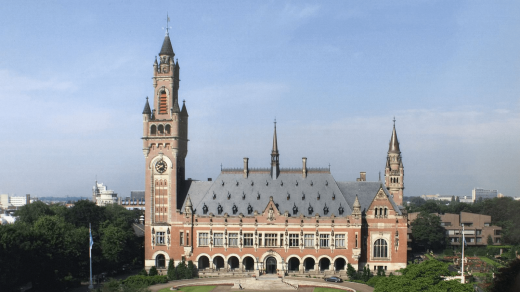
On Friday 19 July 2024, the International Court of Justice will deliver its Advisory Opinion in respect of the Legal Consequences arising from the Policies and Practices of Israel in the Occupied Palestinian Territory, including East Jerusalem.
The proceedings, and the Court’s authority to issue its Advisory Opinion, arose from a request contained in a UN General Assembly resolution of 30 December 2022.
The ICJ announced that it will deliver its advisory opinion on 19 July 2024 at 3:00 p.m. CET. Judge Nawaf Salam, President of the Court, will read out the advisory opinion from the Peace Palace in the Hague. Find more information here and tune in to watch live on UNWebTV.
Click here to read our explainer on the Advisory Opinion and what we can expect from it.

